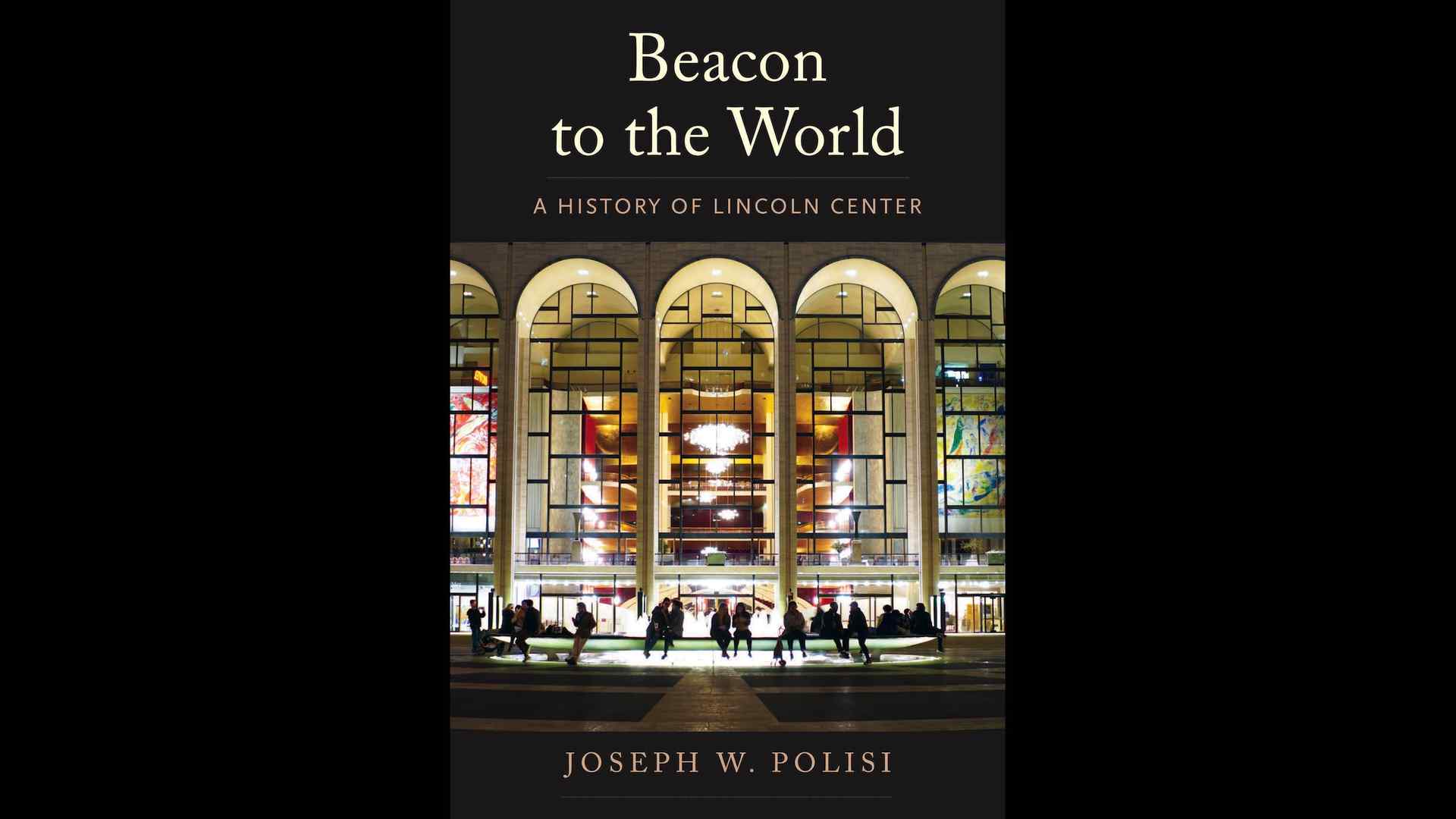
Q&A With Joseph Polisi About His Latest Book
By Susan Jackson
We’re here every day, but how much do we really know about Lincoln Center? Yale University Press has just published Beacon to the World, a comprehensive history of the creation and growth of Lincoln Center by Joseph W. Polisi, Juilliard’s president emeritus and chief China officer.
Filled with larger-than-life personalities—who are frequently at odds with each other—the book is a thorough and compelling recounting of the political, financial, and artistic machinations behind the creation of the place Juilliard has called home for more than half a century. It also chronicles many of the bruising battles and wacky proposals as well as the lofty ideals and artistic triumphs that have characterized its history. Polisi, who has, of course, worked at Lincoln Center for two-thirds of its existence, situates its story in the context of the postwar American arts scene and shows how it has reflected and altered the evolution of the performing arts to the present day—and moving forward. Journal editor Susan Jackson spoke with him recently about it.
Leadership changes—there were 10 presidents and 8 chairs during the history of this book—is one of its leitmotifs. What are some of the others?
Most of the history of Lincoln Center until very recent times—until Henry Timms started [he became president in 2019]—is the competition among the constituents, and that’s another leitmotif.
And Lincoln Center itself wasn’t originally supposed to be a presenting institution—
Not at all. That changed with William Schuman [who became Lincoln Center’s first president after having served in the same role at Juilliard; Polisi’s previous book was a biography of Schuman]. Bill saw his role as being an impresario—that caused a lot of friction with the constituents and eventually with John D. Rockefeller III [the visionary behind Lincoln Center] and the board. He had this lofty view that was so positive about what Lincoln Center could be, but he was also dismissive of the trustees. There was much good that Bill did and there was much upset that he created.
Has Lincoln Center ultimately been a beacon?
Not in the way it was originally conceived—which is that it would be this center of American artmaking and that America had something to give to the world beside money and business and military. That was a big idea post World War II. And what did happen was that the Lincoln Center idea was copied in Washington and Los Angeles and, in other permutations, all around the country. So it’s not quite the focus in New York that Rockefeller saw, but at the same time, Lincoln Center’s commitment to the arts was an extraordinary gesture. It was quite a visionary concept—starting from whole cloth, bringing all the organizations together, paying for all the buildings, giving all the money to the constituents—and it was 16 acres, half a dozen original constituents—education, scholarship, theater, ballet, opera, orchestral music—it was a big idea.
In the epilogue, you bring the story very much up to the present—
The big issues that finish the book—the pandemic, BLM, the #MeToo movement, the insurrection—all come together in an amazing confluence—it was a perfect storm. And all of it has an enormous impact not just on Lincoln Center but on the world.
Beacon to the World closes with a description of Henry Timms’ goals of prioritizing a Lincoln Center that is “‘more diverse and strategic’” and that “‘reimagine[s] the performing arts for the 21st century.’” If these goals can be realized, Polisi writes, and Lincoln Center commits to “bringing creativity, new initiatives, excellence in execution, and beauty to a world in need of solace, [it] can rededicate itself to the infinite capacity of the arts to renew the human spirit.” In the meantime, we can read about the dreams and realities that brought us where we are today.
>Buy the book at the Juilliard Store
>Join President Damian Woetzel and President Emeritus and Chief China Officer Joseph Polisi at a conversation about the book on September 15